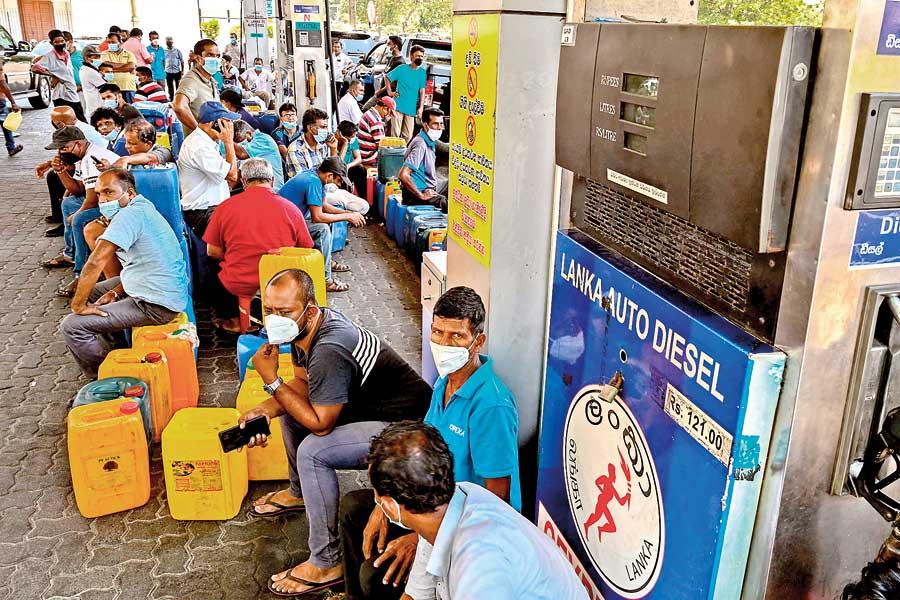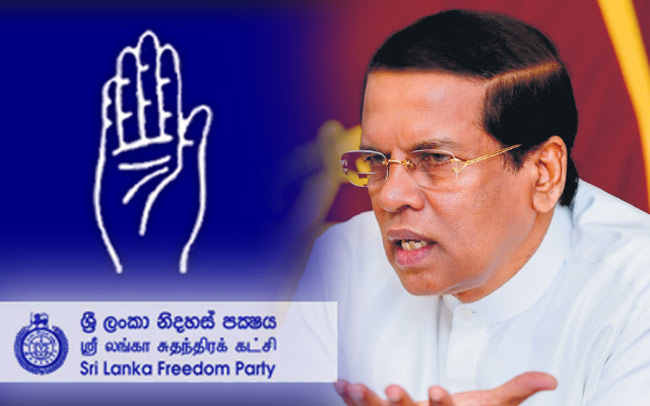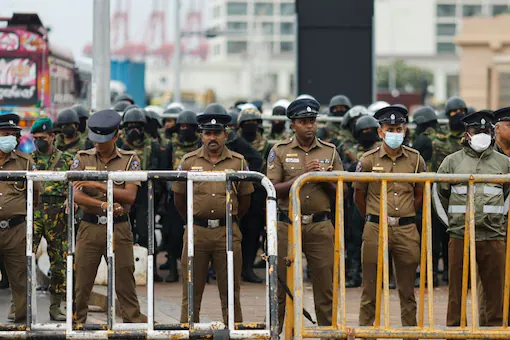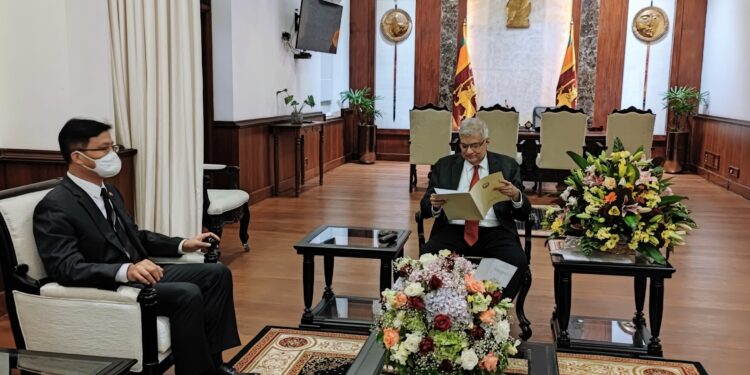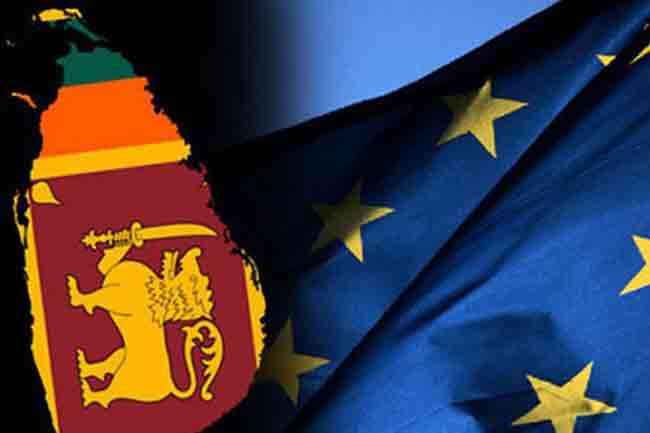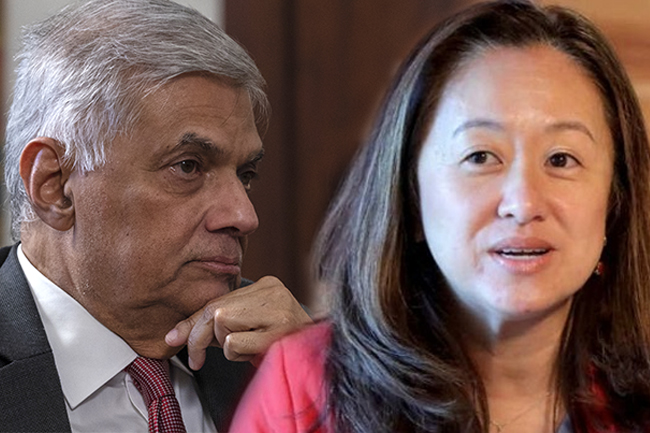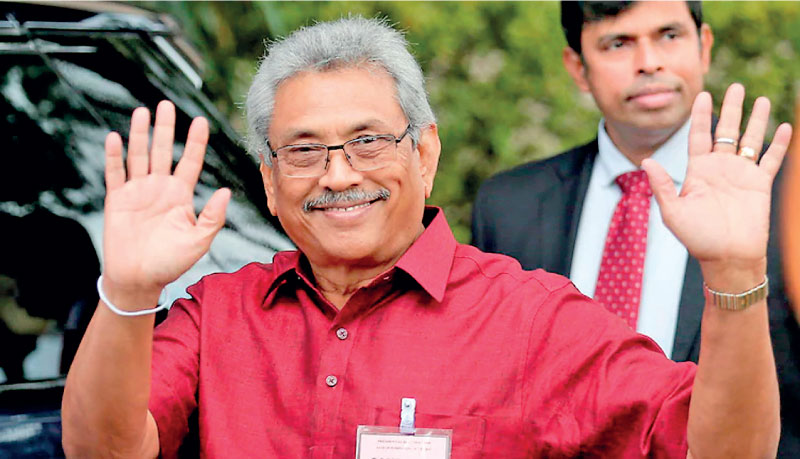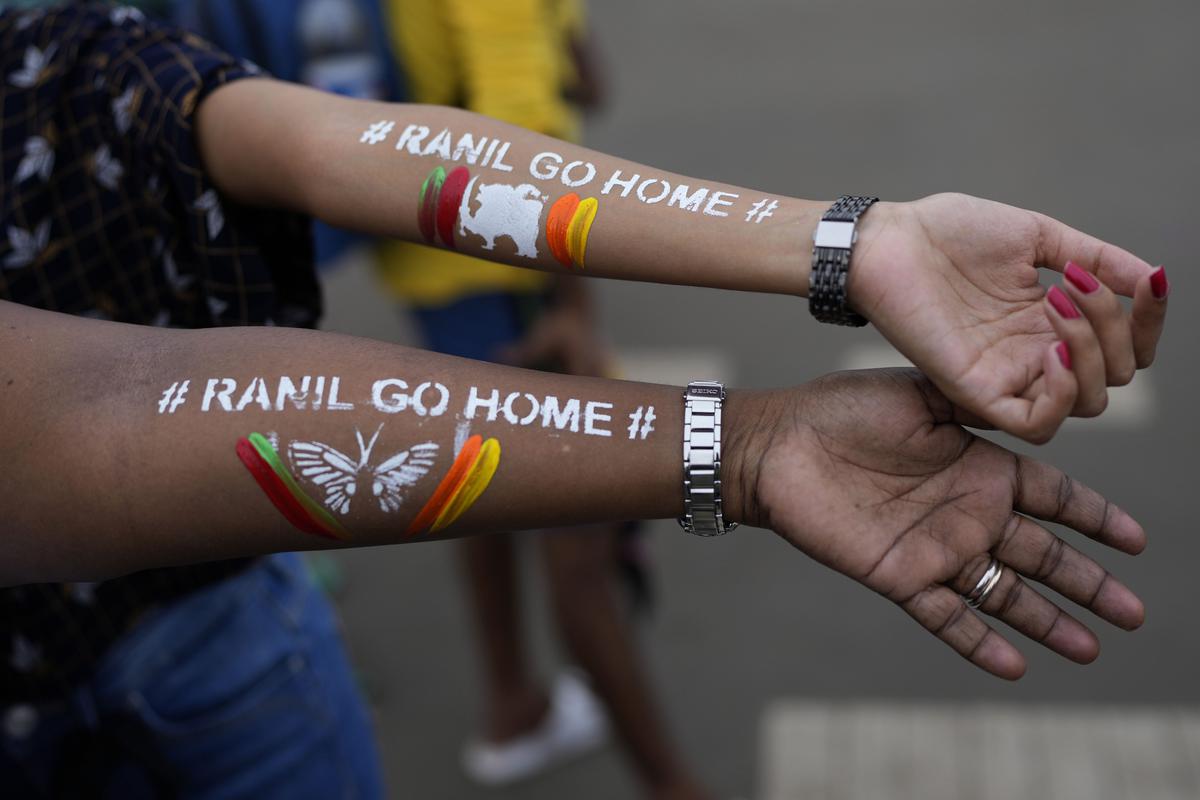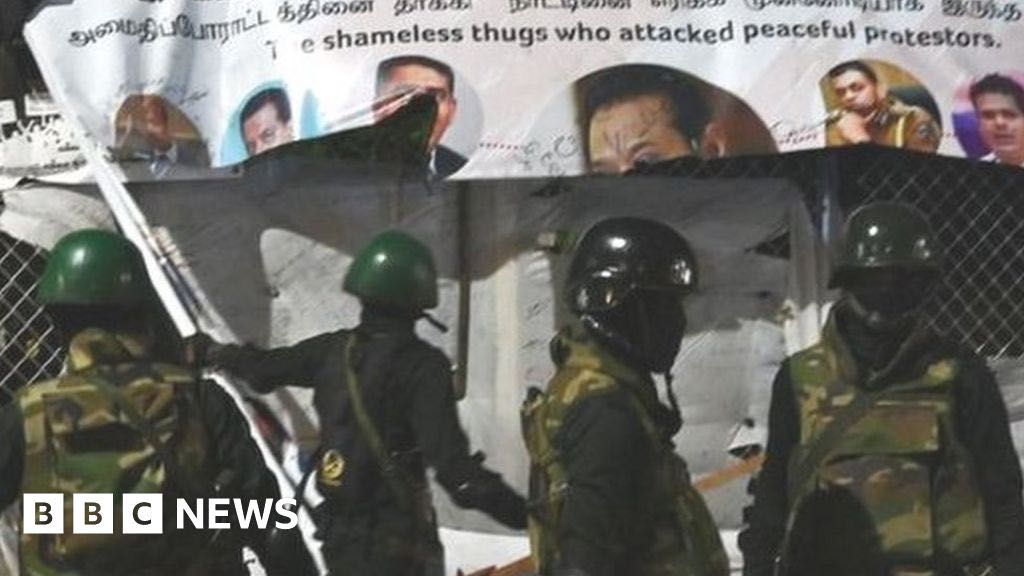IA chief Bill Burns has rightly defined the reason behind Sri Lanka’s current economic crisis. Burns says Sri Lanka made dumb bets on China, and when we see Sri Lanka’s financial past, we find his statement has elements of gravity.
In fact, China was not alone. It was the Rajapaksa-China combined push that forced Sri Lanka to see this day when public protests after the economic collapse forced the fall of the Gotabaya Rajapaksa government. People of the nation are so angry that they are not ready to accept even the next government and its president Ranil Wickremesinghe as he is considered very close to the Rajapaksa clan.
The Rajapaksa clan, which has been ruling Sri Lanka since 2005, first wanted to make the country another Singapore and then a Dubai-like financial powerhouse. It saw easy loans from China as a quick fix for its infrastructure dreams and greener pastures ahead, while easily forgetting the fact that Sri Lanka’s imports were significantly higher than its exports and it needed a safe zone of foreign currency reserve to remain economically viable whenever it faced some tough times as it happened with the Covid crisis. The pandemic affected the country badly, hitting its two major foreign currency earners, tourism and remittances, leading to an economic default.
In the name of upgrading the country to become an infrastructure role model, the Sri Lankan government led by the Rajapaksa clan started developing the southern province, even as the western province with capital Colombo was seen as the nation’s political and financial core.
The Hambantota district in the southern province is the native place of the Rajapaksa clan and Mahinda Rajapaksa wanted to transform the city into the next Colombo, the next political and financial hub, even if feasibility studies didn’t permit such projects.
Built with much hype, the projects ultimately proved to be absolute financial disasters. Clearly, the Sri Lankan approach under the Rajapaksas can be summed up as “dumb bets”, as Burns says. His reaction in fact captures the essence when he counts high-debt Chinese investments as a major factor behind Sri Lanka’s economic collapse.
The above chart clearly puts the economic crisis in perspective of what went wrong. The chart carries data for 2005 to 2011 from the World Bank and from the Central Bank of Sri Lanka from 2012 onwards. The Rajapaksa clan, which has become more or less a political dynasty now with dozens of family members and relatives given government positions when it was in power, had its first family member, Mahinda Rajapaksa, as Sri Lanka’s president in 2005.
His main aim was to end the Sri Lankan civil war with the Tamil militant group LTTE. For that, Sri Lanka needed military support on arms and ammunition and foreign currency to purchase lethal weapons from other countries. No country including India came forward to help Sri Lanka get lethal weapons, except China.
During those four years of civil war under the Mahinda Rajapaksa regime, Sri Lanka’s gross external debt went up by 72%, from $11.3 billion in 2005 to $19.5 billion in 2009, the year of the decisive victory over the LTTE.
Buoyed by the win in the civil war that had crippled life on the island nation for decades, the next stage for Mahinda Rajapaksa was to make Sri Lanka an economic powerhouse like Singapore. He needed financial support for this, which was not available in his nation torn by decades of civil war.
Mahinda Rajapaksa found a solution with China again coming to help. But Beijing came with its own designs of pushing China’s economic colonisation in Sri Lanka under its Belt and Road Initiative (BRI). The country certainly needed infrastructure growth but China even pushed for projects that were expected to be commercially unviable in the long run, like the Hambantota deep sea port and Mattala airport in the Hambantota district.
Both of these projects are white elephants, not generating any significant revenue. Hambantota port in fact went under Chinese control for 99 years in 2017 after Sri Lanka was unable to pay the $1.4 billion bill on it. China also got control of 15,000 acres of land surrounding the airport. It was the first success story of China’s economic colonisation process in Sri Lanka.
Mattala international airport with a capacity to handle one million passengers annually is also called the world’s emptiest airport. It was opened for operations in March 2013. As per Sri Lankan media reports, at times, the airport is not even able to earn enough to pay for its electricity cost. The striking point is the fact that the $210 million airport was made on high-interest commercial loans from China. The government-to-government loans from China to Sri Lanka come at a 2% interest rate but commercial loans are given at much higher interest rates.
Hambantota also saw an international connection centre opened in November 2013, another investment from a Korean loan that has failed to generate any revenue.
While the two big projects mentioned above already failed, the Rajapaksas and China decided to build another, an artificial island built on 269 hectares of land reclaimed from the sea. Loaned and being built by China and called Sri Lanka’s economic game changer, the Colombo Port City project is expected to be the next success story of China’s economic colonisation in Sri Lanka with the country already having defaulted on debt payments.
Under Gotabaya Rajapaksa, Sri Lanka passed the Colombo Port City Economic Commission Bill in May 2021. The legislation gave China absolute authority in an area that is just 700 km away from Chennai in India. Opposition parties in Sri Lanka alleged that the bill was intended to undermine the country’s sovereignty and create a Chinese colony. Sri Lanka’s Supreme Court, while hearing petitions against the bill, also said that certain provisions of it were unconstitutional. China can launch its own currency in the Colombo Port City area.
Why Chinese loan is the main factor
According to the Sri Lankan government’s Department of External Resources (ERD), 47% of the Chinese loans are in the form of external market borrowings. Sri Lanka, in 2007, started issuing international sovereign bonds to tap loans from the global financial markets. These market borrowings are usually short-term loans, with 5 to 10 years of life, and come at a higher interest rate, around 6%. 13% of the Sri Lankan loans are from the Asian Development Bank. China and Japan, as per the government data, sit in third place with 10% of the loans.
But when we go deeper into the details, we find that Chinese loans constitute a much higher proportion of Sri Lankan loans. According to a news analysis published in The Diplomat, China accounted for 20% of Sri Lankan loans at the end of 2021. Out of this 20%, 14% was Chinese debt stock while 6% was in term loan facilities.
If we correlate this figure to the current gross external debt of Sri Lanka, it comes out to be $10.144 billion with $3 billion in the form of term loan facilities. Most of this loan amount from China came after 2005 and it can be confirmed by an official Sri Lankan government statement. According to ERD, “The amount of loan funds obtained from China from 1971 to 2004 was very marginal and it significantly increased after 2005.”
In the last 16 years, Sri Lanka has taken loans worth $40 billion and almost a fourth of it is from China. True, Sri Lanka needs infrastructure projects to boost the country’s economy, but the failure of large-scale infrastructure projects loaned and built by China in fact has eclipsed any good effect on other projects as well, particularly when the country was hit hard by the pandemic.
Chinese approach and the $25 billion miscalculation
An easy approach from China to Sri Lanka’s regular requests for loans and its promise to build massive infrastructure projects to change the Sri Lankan destiny made the Mahinda Rajapaksa government overconfident. It started pushing for loans from other sources as well, mostly in the form of short-term market borrowings or ISBs.
These market borrowings now cost almost half of total Sri Lankan loans, at $25 billion. In January 2022, Sri Lanka, somehow, paid a $500 million bond on its maturity. The country had to pay $1 billion on bond payments this month but it defaulted in May and had to suspend further debt repayments.
Source: News 18


